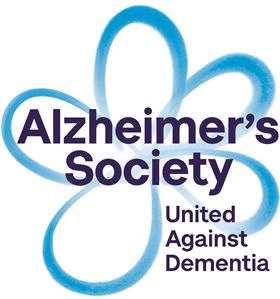
Published: 28/09/2023
A dementia diagnosis will lead to a wide range of emotions, including anxiety and depression. This can become persistent, if they are unable to access the care they need. The problem with anxiety and depression when combined with dementia is that patients don’t always know how to let those around them know that they are struggling.
If you are caring for someone with dementia, it’s vital to learn the signs of depression and anxiety so you can help them get the support they need.
What is the link between anxiety, depression and dementia?
There is a well-documented link between anxiety, depression and dementia. This can occur in newly diagnosed patients as well as those with more advanced dementia. There are many reasons those with dementia might also struggle with mental health conditions, including:
- The emotional impact of the initial diagnosis
- The changes the occur as a result of a diagnosis
- Fear about how the condition will progress
- Worsening dementia symptoms
- Social isolation and loneliness
- A lack of mental stimulation
- Unmet emotional and physical needs
Mood changes can also be a symptom of the disease, particularly in forms of dementia such as vascular dementia and Lewy body dementia.
Symptoms of anxiety and depression with dementia
One of the biggest challenges for dementia patients and their families is being able to spot the signs.
It can be difficult for the patient to track their emotional health and ask for help when something doesn’t feel right. Behavioural changes can also make it difficult for family members to identify the clues.
Some common signs of anxiety and depression in those with dementia include:
- Increased agitation, including pacing or fidgeting
- Needing repeated reassurance
- Irritability and quick mood changes
- Sundowning, where moods change in the evening
- Changes in sleep patterns, such as waking earlier or sleeping more
- Withdrawing from social situations
- A reduction in appetite
- Tearfulness
There is a lot of crossover between dementia symptoms and symptoms of anxiety and depression. This means that there might be a delay in diagnosis for some patients, as their dementia symptoms could be attributed to mental health problems such as anxiety and depression.
Likewise, it can be difficult to diagnose anxiety and depression in dementia patients, as they might have trouble expressing how they feel due to confusion.
It’s important to get a diagnosis as this will help to direct the treatment plan. It can also confirm or rule out other conditions that might go undiagnosed.
How are anxiety and depression treated?
Common treatments for anxiety and depression include:
- Exercise
- Relaxation exercises and mindfulness
- Healthy diet
- Talking therapy
- Alternative therapies such as acupuncture or herbal remedies
Treatment is often more successful in those in the early to middle stages of dementia as they will be more able to participate in these treatments.
Medication such as antidepressants could also be an option if the above strategies have not worked or would not be possible given the individual’s advanced dementia.
How can I support a loved one with anxiety and depression?
Once you have a firm diagnosis, you can take steps to help the individual to manage their anxiety and depression. Those living with dementia might need extra support to stick to a schedule or take steps to improve their mental health.
Mental stimulation is essential, so look at ways to include the individual in activities to prevent them from feeling isolated. If they have become withdrawn, you might need to ramp this up gradually to avoid them feeling overwhelmed and more anxious.
You should also look for ways to encourage them to exercise. A social walking group for those with dementia and their carers would help to keep them active while also helping them to stay connected to their community. Even a short walk around the neighbourhood every day might help them to feel more at ease.
Ask your local GP about talking therapies that might be available on the NHS. Family members can also help the individual by encouraging them to reminisce over family photos, or spend time enjoying their favourite films, books and music together.
Small changes to diet can help to improve mood and outlook. For example, limiting alcohol will help to balance their moods while reducing caffeine can help with sleep problems.
Final thoughts
Dealing with anxiety and depression alongside a dementia diagnosis can feel overwhelming for family members. Remember that help is available and these additional conditions are certainly manageable. It can feel like the odds are stacked against you, but you will soon find that simple steps can help to lessen the impact of anxiety and depression and will improve the quality of life for the patient and their loved ones.
If you're concerned about a loved one's health or wellbeing, we can arrange a home visit to determine if daily personal care or live-in care could give your loved one the support they need to continue living independently.
If you'd like to explore the possibility of introducing a carer or even a simple companionship visit to your home, get in touch with our friendly team today. We care for people in Camden, Hampstead, Golders Green and surrounding areas.
Our friendly and supportive team can be reached by calling on 0203 921 1111 or by emailing us at [email protected]

